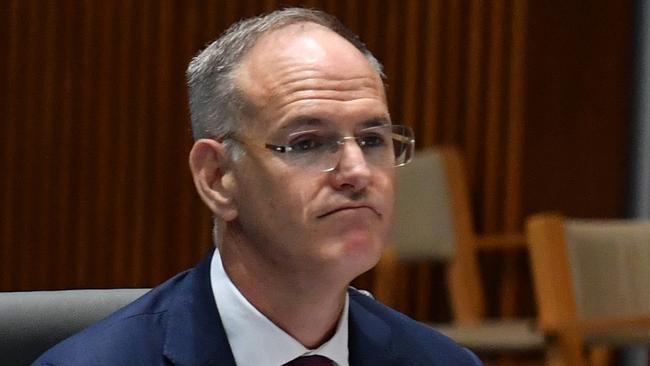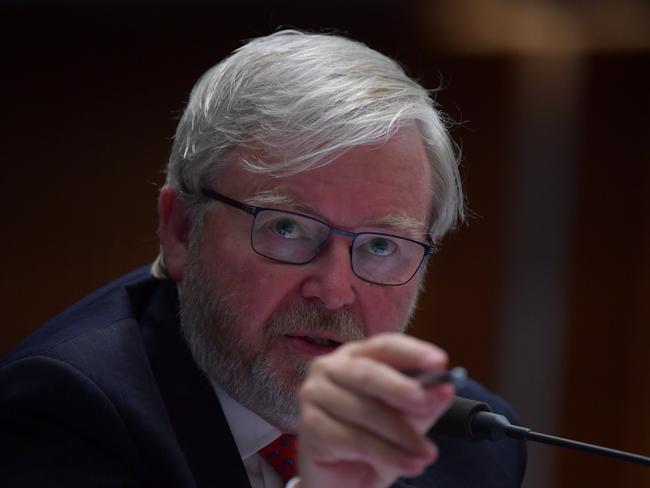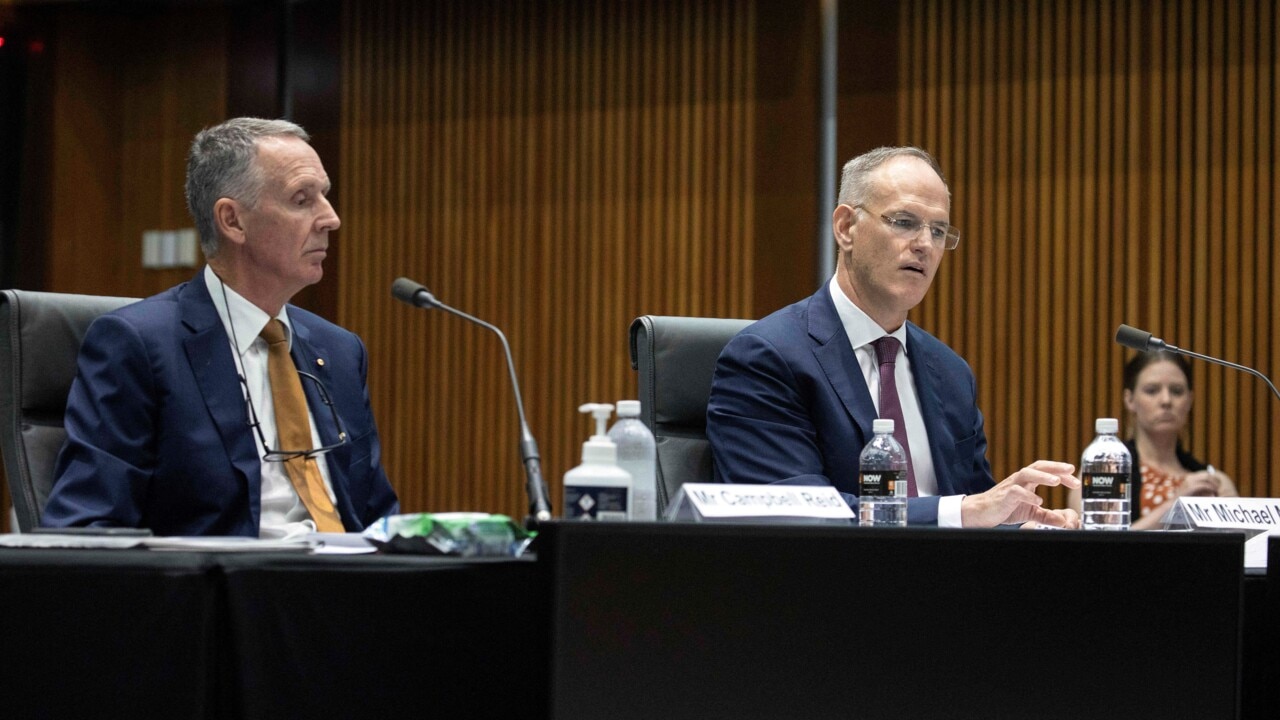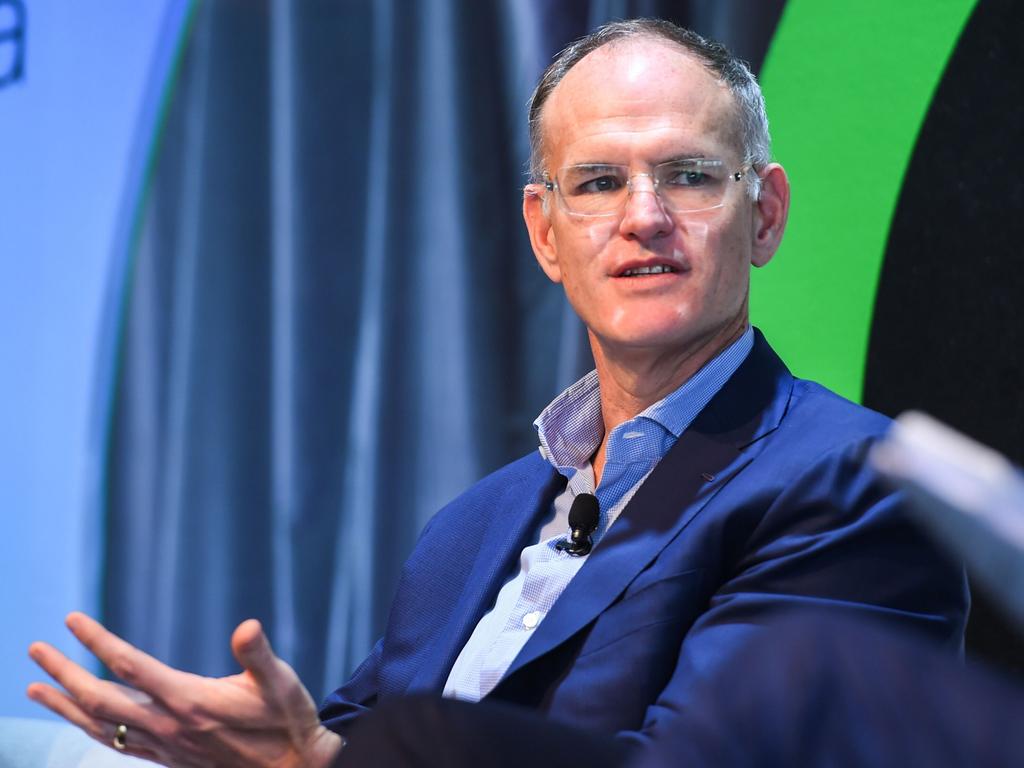Media landscape one of diversity, not monopoly, says News Corp chief Michael Miller
News Corp Australasia chief Michael Miller has told an inquiry into media diversity that the hearing itself ‘is evidence of free speech’.

News Corp Australasia executive chairman Michael Miller has told a Senate inquiry into media diversity that the industry is a “picture of diversity, not monopoly”.
Mr Miller told the hearing on Friday that Australians accessed their information from a range of sources on different mediums.
“The old habits of reading just one newspaper, choosing one radio or TV station, are being replaced by a world embracing unlimited information,” he said.
“Diversity is not just about ownership. It’s about the diversity of views and diversity of sources. And, importantly, the incredible diversity in the way people now access news and information.
“Australians are smart people who make up their own minds about what media they consume, who they back politically.”

Mr Miller appeared at the hearing along with former prime minister Kevin Rudd, Nine chief executive Hugh Marks, News Corp executive Campbell Reid, and the CEO of Australian Associated Press, Emma Cowdroy.
The News Corp boss firmly rejected the suggestion from Labor senator Kim Carr and Greens senator Sarah Hanson-Young that the company was the dominant player in Australia’s media industry.
“The top 10 news websites in Australia, which is where the biggest audiences consume their news, paints a picture of diversity, not monopoly,” Mr Miller said.
The top 10 sites include three operated by Nine and two by News, along with the sites of The Daily Mail and The Guardian, Seven News and Australian Community Media, he said.

“The way the news audience now behaves, including in how it consumes news and views through search and social media, demonstrates the diversity delivered by the digital revolution,” he said. “But those who chant the ‘monopoly’ line ignore all this. They cherry pick old-fashioned measures of printed newspaper sales, viewership of subscription television channels and, frankly, conspiracy theories, to paint a picture that just does not stand up to scrutiny.”
Mr Miller said more regulations and controls on media were not necessary, and that Mr Rudd’s success in triggering the Senate inquiry showed free speech had continued to flourish in Australia.
“This inquiry is evidence of our nation’s embrace of free speech,” he said. “A former prime minister’s (Mr Rudd’s) objections to News Corp, who then mobilised his social media followers, is in a large part why we’re here.”
Mr Rudd has pursued a campaign against News Corp, the publisher of The Weekend Australian, for months and pushed the petition which sparked the inquiry.
Mr Marks told the inquiry that with regards to media diversity, “common ownership does not mean a common voice”. “The diversity of voices within our tent is key to reaching broad audiences and achieving scale that allows us to compete with domestic and global competitors,” he said.




To join the conversation, please log in. Don't have an account? Register
Join the conversation, you are commenting as Logout